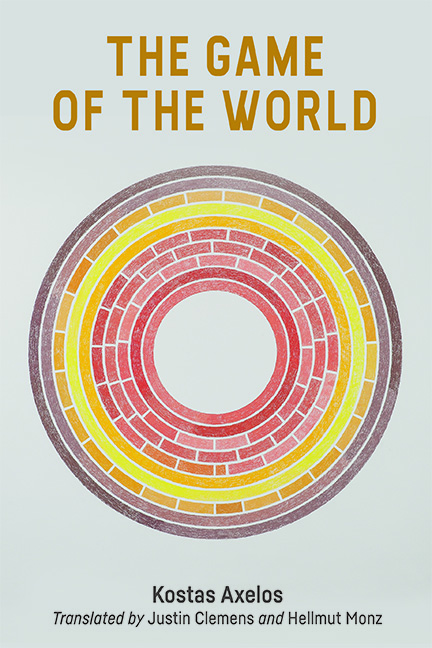Book contents
- Frontmatter
- Contents
- Translators’ Introduction
- Prelude
- Opening. The Great Powers and the Elementary Forces of the World
- I Logos. The Language and Thought of Man and the World
- II That. The Play of the Being in Becoming of the Fragmentary and Fragmented Totality of the Multidimensional and Open World
- III God-Problem
- IV Physis. The Cosmic World
- V The Human in the World
- VI World History
- VII The World of Poetry and Art
- VIII Being-Nothingness, Everything-Nothing, the Unworldly World
- IX The Game of the World
- Notes
- Analytical Table
I - Logos. The Language and Thought of Man and the World
Published online by Cambridge University Press: 17 November 2023
- Frontmatter
- Contents
- Translators’ Introduction
- Prelude
- Opening. The Great Powers and the Elementary Forces of the World
- I Logos. The Language and Thought of Man and the World
- II That. The Play of the Being in Becoming of the Fragmentary and Fragmented Totality of the Multidimensional and Open World
- III God-Problem
- IV Physis. The Cosmic World
- V The Human in the World
- VI World History
- VII The World of Poetry and Art
- VIII Being-Nothingness, Everything-Nothing, the Unworldly World
- IX The Game of the World
- Notes
- Analytical Table
Summary
We have made logos the beginning, the supreme principle and power, the arche leading to cosmic nature and, through it, to human and world history, which develops the discourse that grasps the logos and expresses it. Thus, everything begins and ends with it. It exists, so to speak, before being and knowing, and we find it afterwards. No one has dared to lean over the abyss of this logos pre-existing all and then dominating all.
What precedes language and thought remains the crucial problem.
Every genealogy of the logos leaves vague its own genealogical origin. To be brutal: where to situate the origin of the logos?
If the logos is there from the start of the game, how does it develop and become logos properly speaking?
The relation human-and-world, ‘preceding’ each of its two terms, only finding the terms of their language in this co-presence, is this ‘dialogue’ that confuses its partners. There is neither primacy of language and the thought of the human, nor of language and the thought of the world; language and thought start, so to speak, from the outset at the second power, detach themselves from the first unity and the first cut, raise their voices and emit signs, made and unmade from a ground that escapes – what one can call the play that provokes all plays.
There is not thought and world, but the thought of the world.
From the start of the play, it is at the broken heart of the human and world and world and human dialogue that thought arises, since it has fallen like a catastrophe upon a particular species of beings, human beings, who think, think themselves and think the being of the world. Thought, that is to say from the outset, language speaking, thinking and acting, opens itself to silence, to obnubilation, to what activates and outplays it.
The broadest binary relationship, which involves all the others, binds human and world.
The logos – speech and thought of the world and of the human in a ‘dialogue’ that surpasses any dialectic – appears as the very first moment and – chrono-logical – and topological – place, where and from which is said and thought what gives and withdraws itself from language and thought.
- Type
- Chapter
- Information
- The Game of the World , pp. 111 - 162Publisher: Edinburgh University PressPrint publication year: 2023

